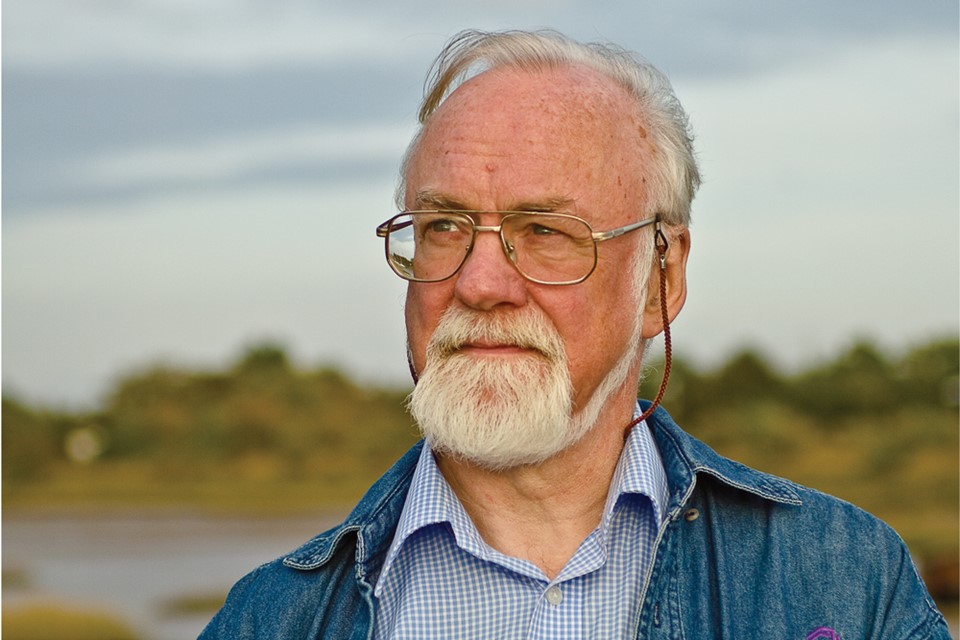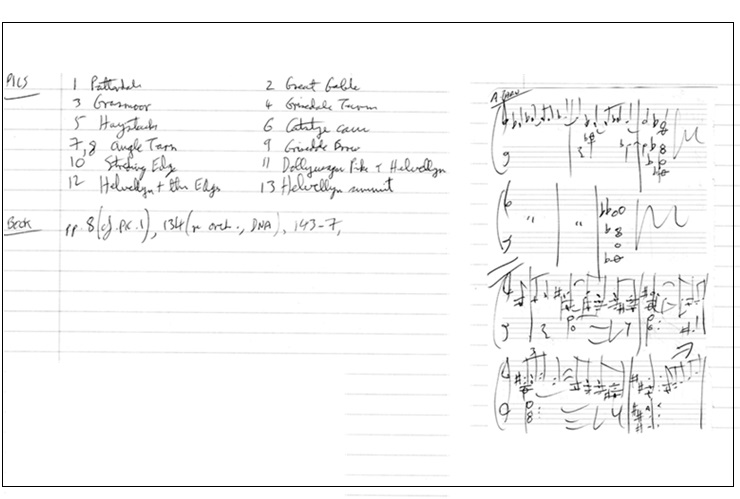

John McCabe – A Life in Letters
Compiled by Monica McCabe
Forsyth publications
To purchase: http://www.forsyths.co.uk
Although it is the keeping of a diary that paints the truest portrait of oneself, it is the writing and the receiving of letters, as Monica McCabe says in her foreword to this wonderfully curated book, that reveals more about a person’s character than any biography or even autobiography.
Her husband, John McCabe CBE (1939-2015) wrote and received extensive correspondence throughout his life. His letters reveal a fascinating musician of precocious talent and focus, yet still one of doubt and anxiety despite the long-held acclaim and respect.
An engrossing personality seeps through his lucid writing (handwritten, typed, postcards, faxes and eventually email) – a great generosity of spirit and empathy to others, but also with an occasional edge that bristles with indignation and opinion. They are a goldmine full of the snapshot nuggets of a composer’s life.
Foundation stone
The foundation stone of deep love and respect between he and Monica reads with a tender, playful joy, even when serious issues are addressed – displayed with a dry wit and a waspish sting amid the warmth and openness.
With his life in its coda, they are written with a bold, emotive honesty in addressing his serious health issues, yet he still retains a sharp bite of exasperation at the shortcomings of the Sibelius notation computer programme.
This is especially so in the final tranche of correspondence. With his life in its coda, they are written with a bold, emotive honesty in addressing his serious health issues, yet he still retains a sharp bite of exasperation at the shortcomings of the Sibelius notation computer programme.

Timeline
The book is set in a chronological timeline of 11 chapters – from the formative years of 1948 to 1965 and the critical acclaim and significance that followed, through to the final period of his life. The list of early correspondents sets the course - from his supportive composition teacher Humphrey Proctor-Gregg and his eager letters to his mother, to Benjamin Britten, John Barbirolli and Andre Previn.
Over the years the correspondence grows in line with his professional and personal relationships. His admiration of Robert Simpson, William Mathias and Richard Rodney Bennett is reciprocated, but so too with many others such as John Pickard (both became the editor of the Simpson Society Journal ‘TONIC’) and Alun Hoddinott. The who’s who is testament to his stature as well as openness of personality – from Beryl Bainbridge to Ursula Vaughan Williams.
The letters reveal his support and acclaim, shared frustrations and celebrations, advice and ability to tease pomposity.
The letters reveal his support and acclaim, shared frustrations and celebrations, advice and ability to tease pomposity. They also champion those he felt were being unjustly ignored (especially female composers) with his connection to the Presteigne Festival and his rather spikier relationship to the BBC Proms (he didn’t get a commission until 2014 with his brilliant ‘Joybox’).
Cloudcatcher Fells
In 1985 ‘Cloudcatcher Fells’ brought his writing to the brass band world.
Gerard Schurmann (who orchestrated the film ‘Lawrence of Arabia’) wrote that he was “bowled over by the music for Brass Band. A complete revelation. I had no idea it was possible to make the medium sound like you do…”
Gerard Schurmann (who orchestrated the film ‘Lawrence of Arabia’) wrote that he was “bowled over by the music for Brass Band. A complete revelation. I had no idea it was possible to make the medium sound like you do…”
Meaningful
That “meaningful music” for the medium was also recognised by others. There are letters from Peter Parkes about the “joy” of ‘Cloudcatcher Fells’ (accompanied by a page showing the nascent early workings of McCabes’s thoughts - below), Edward Gregson on ‘Salamander’, Dr Robert Childs after leading in a performance of ‘Cloudcatcher’ in his presence, and Richard Evans for missing him after illness meant he could not receive his Iles Medal at the official dinner.
That others did not share the same appreciation, especially in its responses after ‘The Maunsell Forts’ was used at the British Open in 2002, which both he and Monica felt was much more personally satisfying work, showed the banding world at its most insular. He held no bitterness, but never wrote again.

Fine life
The final letters bring a fine life to a close – from lifelong friends such as George Odam to conductor Madeleine Venner who premiered his last finished work, ‘Christ’s Nativity’.
As Lord Byron observed, letter writing combines “solitude with good company”.
His final correspondence in December 2014 is from a man still battling with the everyday challenges of writing music and with the hope of even more correspondence from friends and colleagues.
As Lord Byron observed, letter writing combines “solitude with good company”.
In reading this fascinating book, which has been compiled with a telling, unsentimentally loving eye by his widow, you are reminded of that time and time again.
John McCabe died on the 13th February 2015.
Iwan Fox









